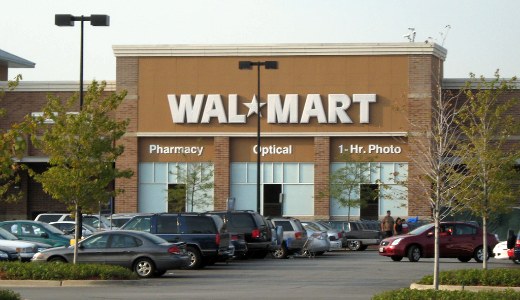
NEW YORK – Allowing Wal-Mart open a store here would be akin to letting in an economy-killing “Trojan Horse,” says this city’s Public Advocate Bill de Blasio, and he has a study to prove it.
The report, commissioned by the Public Advocate’s office and the Hunter College Center for Community Planning and Development, reviews more than 50 studies since 2002 on the effects, both positive and negative, of the mega-store’s entrance into communities. It includes research on how Wal-Mart has impacted Chicago, the first ever study of Wal-Mart in a big city.
The corporation is starting a multi-million PR campaign aimed at changing the opinions of New Yorkers, who have previously fought off the retail giant’s overtures in Brooklyn, Queens and Staten Island on separate occasions. The campaign is to consist of television and radio spots, as well as direct mailings.
Wal-Mart claims that it will create jobs, but the findings of the reports contradict this claim.
The findings? Wal-Mart kills jobs, drives down wages, gobbles up tax dollars and exacerbates the problem of a dwindling “middle class,” leaving cities and towns more divided between super rich and poor.
Opponents argue that Wal-Mart is using a cynical ploy: they want to generate support by opening their store in one of the poorest neighborhoods in the city, Brooklyn’s East New York, in order to prey upon the hopes of job-starved residents desperate for work.
But while Wal-Mart would initially create some jobs, once this “Trojan horse” is inside the city’s gates, the job situation would be worse than previously.
“Wal-Mart’s record of driving small businesses out of town and paying below-poverty line wages to its employees will only exacerbate the current decline of New York City’s middle class,” de Blasio said. “We must do everything we can to spur job creation in New York City, but that does not include opening our doors to a proven job killer.”
According to the study, Wal-Mart stores kill three jobs for every two they create. Overall retail sales stays about the same – in Chicago, retail sales went up only slightly in the new Wal-Mart location’s zip code, but went down in the areas surrounding it. If retail stays the same with Wal-Mart in the picture, the result is less business going to local retailers, especially “ma and pa” stores.
Local supermarkets and discount stores generally lose 10 to 40 percent of their business after Wal-Mart moves in.
And while these local stores keep most of the money they earn in the community, $68 out of every $100, chain stores like Wal-Mart only leave $43 to circulate. Overall, the value the mega-store chain brings into a community is far offset by the values it destroys through displacement. California is estimated to have lost $2.8 billion annually because of Wal-Mart’s presence.
Less money in the local economy produces a downward pressure on jobs and, in a city like New York, any reduction in tax revenues exacerbates ongoing budget crises, meaning both reduction in public services and the possibility of public sector layoffs.
The chain routinely costs taxpayers money. It’s admitted to failing to pay $2.95 billion for fiscal year 2009 and cheated authorities out of “$245 million in taxes in 2008 by paying rent to itself and then deducting that rent from its taxable income.”
Worse news still for New Yorkers looking for employment, any job they might find at Wal-Mart will likely leave them in poverty: annual pay averages out at $20,774, below the official poverty line for a family, and well below this city’s median income.
Once again, New Yorkers are planning to fight Wal-Mart. The City Council will hold hearings, which will go on, even though Wal-Mart officials sent Council Speaker Christine Quinn a letter saying they would not attend. The labor movement and its allies are also in the planning stages to reactivate the coalition that kept the Trojan horse out before.
New York can act as a vanguard in the fight against the retail behemoth in large urban cities. “This is not only about one store in East New York. Wal-Mart is planning a massive expansion into urban markets,” said Brian Paul, an urban planning expert at Hunter College. “Allowing one Wal-Mart to enter New York may open the floodgates and devastate small businesses in neighborhood retail districts throughout the city.”
Image: Chicago’s first Wal-Mart, which turned out to be a net negative for the city’s economy and working people. Zol87 // CC BY-SA 2.0












Comments